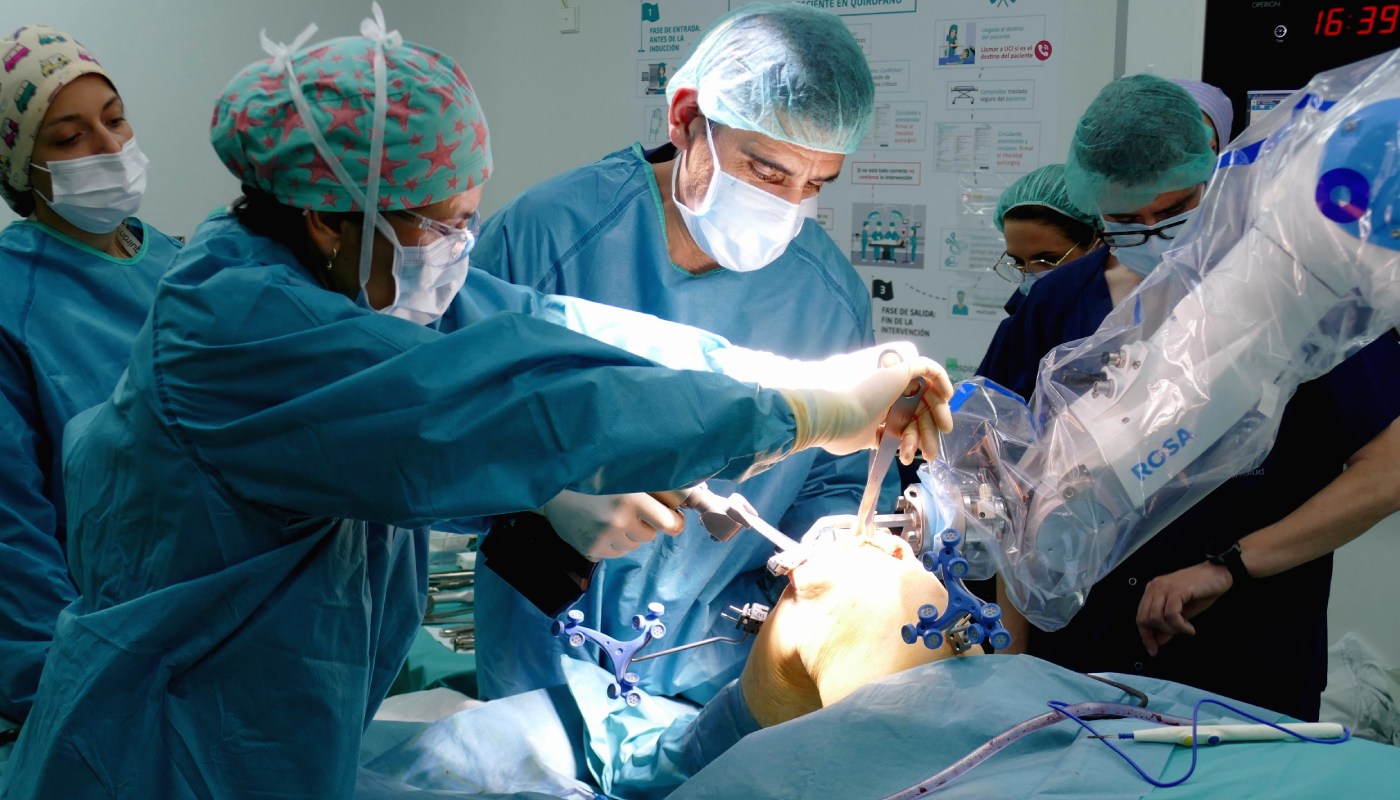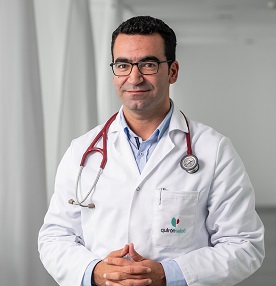Low calorie diets are the least effective when it comes to losing weight
Low-calorie diets with food restrictions are the least effective because the body responds to them by reducing their spending. In addition, although in the beginning they make lose weight, in the medium and long term it is more difficult to do it, as they affirm specialists in nutrition of the hospitals Quirónsalud of Murcia, Valencia and Torrevieja.
After the Christmas holidays many patients consider embarking on miracle diets, in the consumption of slimming detox products, or in gym routines with the intention of burning calories until exhaustion. As explained by Carolina Pérez, a nutritionist at the Quirónsalud hospitals in Torrevieja and Murcia, "the main risks of the so-called miracle diets derive from the excessive rapidity with which weight loss occurs. They drastically reduce the calories ingested and generate nutritional imbalances. This apparent success at the beginning is due not only to the reduction of fat, but also to the loss of muscle mass, one of the most metabolically active body tissues, and that partly explains that failure in the medium and long term. "
As advised by the nutritionist Rocío Práxedes, of the Obesity Unit of the Hospital Quirónsalud Valencia, for a diet to be effective it must be moderately hypocaloric: "In this way we avoid metabolic adaptations that prevent our patient from continuing to lose weight; and, simply, because if there is hunger, there is a risk of breaking the dietary guideline and abandoning the treatment ".
Recommended guidelines
For a diet to be effective, specialists recommend following the following guidelines:
Complete and varied diet, that is, cover 100% of the patient's nutritional requirements and include all the basic food groups.
That is not too strict and suits our tastes, because if not, it will be very easy for us to move on from it and end up eating more of the account or what does not touch.
Slow weight loss; losing more than one kilo per week will be counterproductive. The optimal dietary loss is 500gr-700gr / week.
Realistic. Propose changes in diet that are progressive and weight loss goals that are achievable.
Do not skip any food. Normally, diets usually consist of five daily meals that must be met to keep the blood glucose level constant and not arrive hungry at the next intake.
Respectful of each person's beliefs and culture.
When to go for surgery
When we talk about body mass indexes higher than 35, a treatment of nutritional diets, together with the subsequent follow-up of the expert multidisciplinary team, may not be enough, in which case we could resort to surgery for obesity or bariatric surgery. It must always be the specialist doctor who determines the most effective and safe treatment for each case, in a personalized way.
The evolution of minimally invasive operations has revolutionized in the last decade the world of modern surgery, including bariatric surgery. "The comprehensive treatment of patients with overweight, obesity and type 2 diabetes guarantees the best results. In addition, the risks of surgical intervention are very low, especially if we compare them with the pathologies derived from this disease, "says Dr. Pedro Bretcha, coordinator of the Unit of Obesity and General Surgery and Digestive Diseases Hospital Quirónsalud Torrevieja.
As for the benefits of this intervention, "80% of diabetics cease to be, remitting the disease. The remaining 20% substantially improves, in addition to achieving a loss greater than 70% of excess weight, even reaching the ideal weight if it incorporates healthy habits, such as physical exercise and a healthy and balanced diet. This results in an average increase in the life of the obese in ten years, together with a better quality. In short, they live longer and better, "says Dr. Carlos Sala, coordinator of the Obesity Unit and specialist in metabolic surgery at the Hospital Quirónsalud Valencia. Despite its benefits, only 5% of obese Spaniards submit to this intervention, due to lack of information or because they do not have access to these units.
Current events
Current events
- 18 de abril de 2024
La Fundación Jiménez Díaz pone en marcha el Servicio de Atención Integral al Viajero Internacional para...
La consulta aporta asesoramiento personalizado, un calendario de vacunación individualizado, en caso de ser necesario, y pautas de profilaxis y tratamientoHospital Universitario Fundación Jiménez Díaz - 19 de abril de 2024
Los centros de Quirónsalud en Tenerife colaboran en la primera edición de la carrera solidaria Ruta 091
Los hospitales Quirónsalud Tenerife, Quirónsalud Costa Adeje y Quirónsalud Vida velarán por la salud de todos los participantes de la carrera solidaria Ruta 091 que organiza ...Hospital Quirónsalud Costa AdejeHospital Quirónsalud TenerifeHospital Quirónsalud VidaUrgencias - 19 de abril de 2024
Quirónsalud, Healthcare Partner del Rafa Nadal Academy Padel Tour by Adecco Group
Un nuevo circuito de pádel amateur que recorrerá diferentes ciudades españolas, con el objetivo de aunar competición, ocio, diversión y valores.Quirónsalud - 19 de abril de 2024
Hospital Quirónsalud Barcelona pone en marcha el programa de Detección Precoz de Cáncer de Pulmón
El cribado de cáncer, junto al abandono del consumo de tabaco, ha demostrado ser la estrategia principal en la reducción de la mortalidad por cáncer de pulmón. A partir de ah...Hospital Quirónsalud BarcelonaMedicina Interna - 19 de abril de 2024
Un robot ayuda a colocar prótesis de rodilla adaptándose a las características de cada paciente
El Hospital Universitario Quirónsalud Madrid utiliza el robot ROSA que ayuda a los cirujanos a calcular la mejor posición y el tamaño de la prótesisHospital Universitario Quirónsalud MadridCirugía Ortopédica y Traumatología - 19 de abril de 2024
La Dra. Adriana Izquierdo-Domínguez, alergóloga de Centro Médico Teknon, nombrada Académica de Mérito...
Este nombramiento es un reconocimiento a su trayectoria profesional y su aportación al mundo del perfume y sus campos relacionados.Centro Médico Teknon - 19 de abril de 2024
‘El hígado graso metabólico debe ser controlado por sus múltiples factores de riesgo’
• Quirónsalud Huelva, con la incorporación del doctor Francisco Reina Solano, refuerza el equipo médico especializado en su estudio y tratamiento.Hospital Quirónsalud HuelvaAparato Digestivo - 18 de abril de 2024
Quirónsalud, Healthcare Partner del Mutua Madrid Open de tenis
Las mejores raquetas del tenis mundial se dan cita en este torneo, que se disputa en la Caja Mágica del 22 de abril al 5 de mayo.Quirónsalud - 10 de mayo de 2024
III VENOUS SUMMIT CCEV 2024 Endovascular Surgery Chapter
3ª del VENOUS SUMMIT del CCEV En esta 3ª edición, que se celebrará los próximos 10 y 11 de mayo de 2024, mantendremos el formato horario de comenzar ese viernes a media mañan...Hospital Quirónsalud MálagaAngiología y Cirugía Vascular - 25 de abril de 2024
II Reunión Nacional Multidisciplinar de Innovación en Cáncer
JUEVES 25 DE ABRIL 15.30-16.30H Entrega de documentación.16.30-16.45H Bienvenida y presentación. Dr. Jorge Contreras Martínez / Dr. Manuel Cobo Dols / Dr. Tomás Urda Valcárc...Hospital Quirónsalud MálagaOncología Médica - 17 de abril de 2024
El Hospital Universitario Rey Juan Carlos implantará el programa MAIC Continuum para mejorar la transición...
El 3-5% de los ingresos hospitalarios en España son debidos a la insuficiencia cardiaca, primera causa de hospitalización en mayores de 65 años en España Más de 20 hospitales...Hospital Universitario Rey Juan Carlos - 17 de abril de 2024
El Hospital Universitario Infanta Elena implantará el programa MAIC Continuum para mejorar la transición...
El 3-5% de los ingresos hospitalarios en España son debidos a la insuficiencia cardiaca, primera causa de hospitalización en mayores de 65 años en España Más de 20 hospitales...Hospital Universitario Infanta Elena - 17 de abril de 2024
El Hospital Universitario General de Villalba implantará el programa MAIC Continuum para mejorar la transición...
El 3-5% de los ingresos hospitalarios en España son debidos a la insuficiencia cardiaca, primera causa de hospitalización en mayores de 65 años en España Más de 20 hospitales...Hospital Universitario General de Villalba - 17 de abril de 2024
El doctor Héctor Meijide, organiza la II Reunión del grupo de asistencia compartida e interconsultas...
El encuentro médico, abordará la asistencia compartida entre cirujanos e internistas en el proceso de la cirugía abdominal mayor, de colon y hepatobiliopancreáticaHospital Quirónsalud A CoruñaMedicina Interna - 17 de abril de 2024
Un equipo del CNIC identifica dianas terapéuticas para prevenir el daño cardiaco asociado a una terapia...
La investigación está liderada por el Dr. Borja Ibáñez, director científico del Centro Nacional de Investigaciones Cardiovasculares (CNIC), cardiólogo intervencionista en la ...Hospital Universitario Fundación Jiménez Díaz












